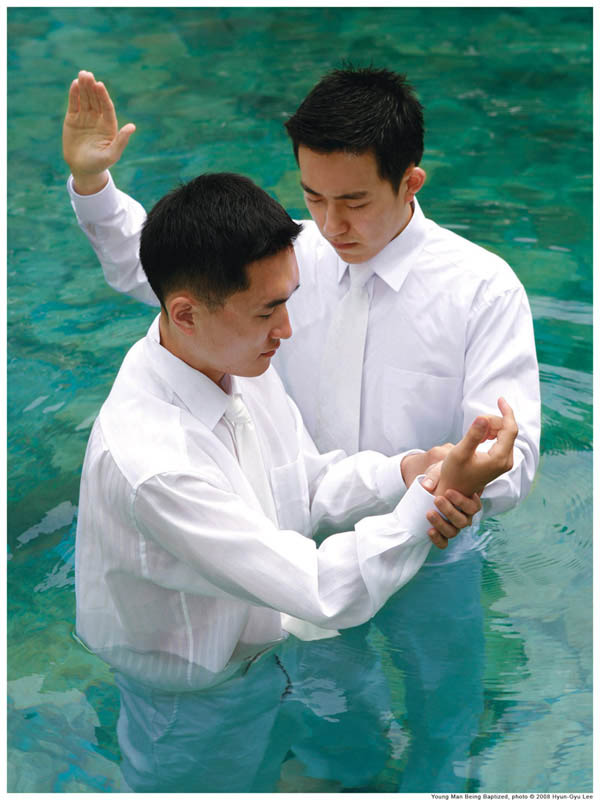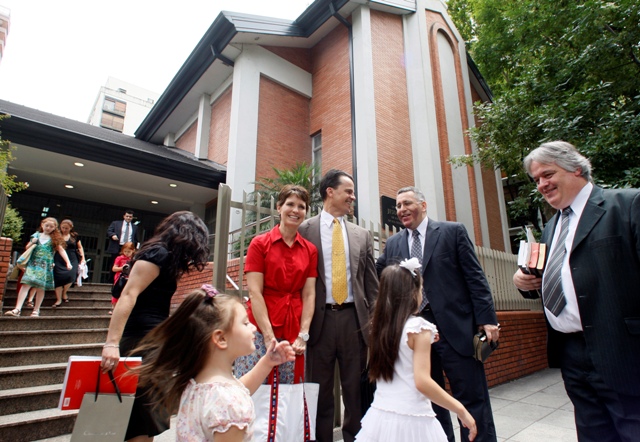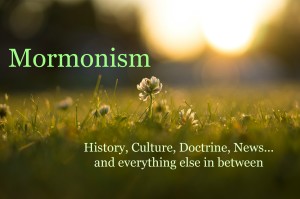I discovered something, recently, and I feel somewhat ridiculous that it took me this long to discover this truth. In fact, I would say it’s taken me about 25 years to learn this, with the most concentrated schooling in the past decade.
Love comes first.
The end.
 Okay, not really the end, but honestly, love comes first. It’s both that simple and that complex, and opens a whole myriad of possibilities and has helped me to understand how God works in our lives and how the Atonement can heal us. It also has given me the key to know how God wants us to interact with one another.
Okay, not really the end, but honestly, love comes first. It’s both that simple and that complex, and opens a whole myriad of possibilities and has helped me to understand how God works in our lives and how the Atonement can heal us. It also has given me the key to know how God wants us to interact with one another.
For years and years, dear reader, I was convinced that obedience to laws and ordinances, understanding truth, and subscribing to that truth, was the only way to God. Repentance was absolutely a must, but if you never broke the rules, then you wouldn’t have to (you see where this is going?). Rules were to be obeyed, and breaking or bending them in any way meant there was a flaw somewhere. (Well, yeah, there’s a flaw. It’s called mortality.)
I subscribed to the school of thought that questions were to be only good questions. There was no room for doubt, anywhere. We obey, we follow, we do, we are blessed. To me, it was that simple. Mostly, this came about because I watched how many of my friends were making bad choices and not obeying the rules.
I saw the consequences of that behavior, and so, to my logical mind, that meant the way to happiness was strict rule obeying. My last post actually talked about this at length –how our choices to obey and make the choice to follow God’s commandments can bring about great joy! And it can. It does. But taken too far to the extreme, it can become Pharisee-like and ruin the whole point of everything.
Eleven years ago, I started blogging. It was wonderful to write my thoughts and make friends in the process. I perused a lot of community blogs and found myself swept up in places where rule following was taboo. I saw a lot of dissent, apostasy, doubt, questions, and ridicule towards prophets of God. It bothered me. A lot! I couldn’t understand how people who had the gospel of Jesus Christ could see things so differently. Didn’t they know? Didn’t they understand? How could they not see it as I see it?
I spent a lot of time writing rebuttals and posts to stand up against these blogs. I commented and spent a lot of my time doing everything I could to defend the Church and the prophets. I would argue, judge, and think about what to say all day long. General Conference would come around and I would look for the words from apostles that would condemn the people I was arguing with/against.
 I didn’t want to hear about faith, love, etc. I wanted ammunition! How could I use scriptures and prophetic words to get my point across? How could I show that what I know to be true is really true? How could I prove it? The more I wrote, the more people disagreed with me. The more I contented, the more they fought back.
I didn’t want to hear about faith, love, etc. I wanted ammunition! How could I use scriptures and prophetic words to get my point across? How could I show that what I know to be true is really true? How could I prove it? The more I wrote, the more people disagreed with me. The more I contented, the more they fought back.
And in the midst of all this, I started to doubt. Maybe what they’re saying is true? They’re smarter than me (lawyers, writers, doctors), maybe I’m wrong? What if things aren’t quite as exact as I had thought?
I finally gave up. After about 4 or 5 years of slogging through this type of writing and blogging, I walked away. It was the best thing I ever did for my testimony, but the experience I had set me on a path toward looking at things from differing perspectives. Being thrown into the mud pit of dissent, I learned some valuable lessons, most of which led me away from the very pit I feared.
I finally started looking inward and upward, not outward. I began to ask questions that would improve my soul –not wondering about how to improve someone else’s soul. I started to view General Conference with focus and understanding, and the talks about peace and love began to penetrate my heart more frequently.
I started to see that no matter how much truth I had on my side, the reason why people wouldn’t listen to me is because I didn’t care about them –I only cared about being right.
I started to see that change comes after we feel loved. Love is something that purifies us and cleanses us in a way that nothing else can, dear reader. When we feel loved, we are more open and genuine. When we feel loved, we are more apt to listen. When we feel loved, we are strengthened and we are more willing to change our behavior. In essence, love transforms us. We can become who God needs us to be when we are supported by love.
It is any surprise, then, that when it comes to God, religion, laws and ordinances, that love comes first?
For God so loved the world, that he gave his only begotten Son, that whosoever believeth in him should not perish, but have everlasting life. For God sent not his Son into the world to condemn the world; but that the world through him might be saved. (John 3:16)
 The very reason for our existence has come out of love. If we think of the plan of salvation, the whole point was because God loved us enough to create a plan where we could become like Him. Not only that, but He knew we’d have to experience sin to do it, and since no unclean thing can be in the presence of God, He gave us a Savior.
The very reason for our existence has come out of love. If we think of the plan of salvation, the whole point was because God loved us enough to create a plan where we could become like Him. Not only that, but He knew we’d have to experience sin to do it, and since no unclean thing can be in the presence of God, He gave us a Savior.
Not only that, dear reader, but Jesus Christ offered Himself! He volunteered for the job as Mediator. He loved us enough to do that for us. And then They created this world for us, and honestly, who can look at this beautiful, diverse, amazing world and not be overwhelmed by the love that must have gone into every detail?
Everything started with love.
Adam and Eve loved each other enough to leave the garden and bear children.
Moses loved God and his people so much that he went back to Egypt and stood up against his adoptive family (whom he also loved) to set Israel free.
Lehi loved God and so he took his family into the wilderness and across the ocean.
Joseph loved so much that he forgave the brothers that left him for dead and saved all of Israel.
Jesus Christ loved so much that His entire existence is to help us, heal us, guide us, teach us, and save us.
 In fact, I searched the scriptures to find out if love comes first, and I found so many examples, I couldn’t write them all down fast enough. Everywhere I looked it was love, first, obedience, second. Always.
In fact, I searched the scriptures to find out if love comes first, and I found so many examples, I couldn’t write them all down fast enough. Everywhere I looked it was love, first, obedience, second. Always.
Here are a few more examples:
And now abideth faith, hope, charity, these three; but the greatest of these is charity. (1 Corinthians 1:13)
And though I have the gift of prophecy, and understand all mysteries, and all knowledge; and though I have all faith, so that I could remove mountains, and have not charity, I am nothing. (1 Corinthians 1:2)
And except ye have charity ye can in nowise be saved in the kingdom of God. (Moroni 10:21)
Then Jesus beholding him loved him, and said unto him, One thing thou lackest: go thy way, sell whatsoever thou hast, and give to the poor, and thou shalt have treasure in heaven: and come, take up the cross, and follow me. (Mark 10:21)
A new commandment I give unto you, That ye love one another; as I have loved you, that ye also love one another. By this shall all men know that ye are my disciples, if ye have love one to another. (John 13:34-35)
But behold I say unto you, love your enemies, bless them that curse you, do good to them that hate you, and pray for them who despitefully use you and persecute you; That ye may be the children of your Father who is in heaven; for he maketh his sun to rise on the evil and on the good. (3 Nephi 12:44-45)
And no one can assist in this work except he shall be humble and full of love, having faith, hope, and charity, being temperate in all things, whatsoever shall be entrusted to his care. (Doctrine and Covenants 12:8)
I know thy heart, and have heard thy prayers concerning thy brethren. Be not partial towards them in love above many others, but let thy love be for them as for thyself; and let thy love abound unto all men, and unto all who love my name. (Doctrine and Covenants 112:11)
and my favorite:
No power or influence can or ought to be maintained by virtue of the priesthood, only by persuasion, by long-suffering, by gentleness and meekness, and by love unfeigned; By kindness, and pure knowledge, which shall greatly enlarge the soul without hypocrisy, and without guile— (Doctrine and Covenants 121:41-42)
And here are some recent words in General Conference about love:
No true teaching or learning will ever occur when done in frustration or anger, and hearts will not change where love is not present. Whether we act in our roles as parents, teachers, or leaders, true teaching will happen only in an atmosphere of trust rather than condemnation…. Love should never be withdrawn when a child, friend, or family member fails to live up to our expectations. –Elder S. Mark Palmer (“Jesus Beholding Him Loved Him” April 2017)
Thomas S. Monson
God’s love is there for you whether or not you feel you deserve love. It is simply always there. —President Thomas S. Monson
Some will argue that God blesses everyone without distinction–citing, for example, Jesus’s statement in the Sermon on the Mount: “[God] maketh his sun to rise on the evil and on the good, and sendeth rain on the just and on the unjust.” Indeed, God does rain down upon all His children all the blessings He can–all the blessings that love and law and justice and mercy will permit.
And He commands us to be likewise generous: “I say unto you, Love your enemies, bless them that curse you, do good to them that hate you, and pray for them which despitefully use you, and persecute you; “That ye may be the children of your Father which is in heaven.” Nevertheless, God’s greater blessings are conditioned on obedience. —Elder D. Todd Christofferson (“Abide In My Love” October 2016)
President Thomas S. Monson, who has understood and lived the admonition to love, said: “I believe the Savior is telling us that unless we lose ourselves in service to others, there is little purpose to our own lives. Those who live only for themselves eventually shrivel up and … lose their lives, while those who lose themselves in service to others grow and flourish–and in effect save their lives.”
Sister Sondra D. Heaston asked: “What if we could really see into each other’s hearts? Would we understand each other better? By feeling what others feel, seeing what others see, and hearing what others hear, would we make, and take, the time to serve others, and would we treat them differently? Would we treat them with more patience, more kindness, and more tolerance?”
–Sister Cheryl A. Esplin (“He Asks Us To Be His Hands” April 2016)
It doesn’t matter, dear reader, if you have all the evidence in the world to back up your opinions. It doesn’t matter if you are right. If you don’t have love, you have nothing. If you don’t show it with love, then it doesn’t matter what you say.
This is one of the hardest things I am learning to overcome –not because I’m incapable of loving (the people who know me understand I am a very loving person), and not because I don’t understand the importance of love, but because for whatever reason, I have always subconsciously put love after rules. And it’s simply the wrong order.
Love, then obedience. Love, then rules. Love, then discipline.
Love always, always comes first.
About Cheryl S. Savage
Cheryl S. Savage has one incredible husband and seven sensational kids. Since earning her bachelor's degree in marriage and family studies at BYU many years ago, she spends her time raising the kids, teaching piano lessons, voraciously reading, traveling, romanticizing, writing, and learning. She and her husband have moved their family from coast to coast, but currently reside in Kansas.
Twitter •









Thank you for your writings in this. I started feeling the same way as you… better to be obedient and right but I see how that is not God’s way… Thank you, Thank you for your experience and thoughts!!
If I could clearly express my own thoughts and feelings I would say that it’s not really a matter of placing love and obedience in their proper places. Or rather, it seems to me that the question might not be which comes first. The question, perhaps, ought to be why are we to be obedient? It seems that your growth process has brought you to a place where you can see clearly that obedience out of fear, to compete, or to be right is unfulfilling and doesn’t truly bring blessings and growth. However, is it possible that the truth lies in being truly obedient for the right reason? Obedience because of love. Not one above the other…but holding hands a in a great circle of truth.